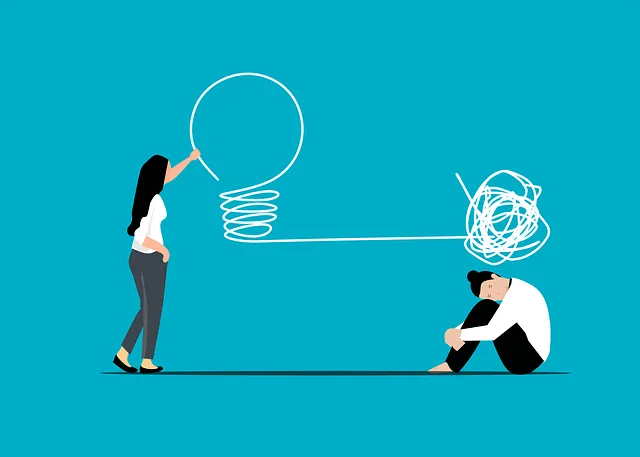Denver Kaiser Permanente prioritizes mental wellness through a comprehensive evaluation process, leveraging phone-based assessments and evidence-based practices. Their mental health phone number offers accessible guidance, supporting individuals with stress management and emotional well-being. Using standardized tools and surveys, they analyze program effectiveness, focusing on coping strategies, emotional intelligence, and crisis intervention. This data-driven approach enables continuous improvement, ensuring their services meet the evolving needs of those seeking mental health support via the Denver Kaiser Permanente mental health phone number.
Mental wellness program evaluation is a critical component of ensuring effective support. This article explores various methods, from traditional standardized tools to innovative phone-based assessments, for evaluating mental health programs. We examine real-world examples like Denver Kaiser Permanente’s resources and their phone-based assessment techniques. By focusing on continuous improvement through feedback loops and data analysis, we can enhance program effectiveness, especially leveraging the Denver Kaiser Permanente mental health phone number for accessible support.
- Understanding Mental Wellness Program Evaluation
- Denver Kaiser Permanente: A Resource for Mental Health Support
- Phone-Based Assessment Techniques for Effective Evaluation
- Standardized Tools and Surveys in Mental Health Programs
- Continuous Improvement: Feedback Loops and Data Analysis
Understanding Mental Wellness Program Evaluation

Mental wellness program evaluation is a crucial process that helps assess the effectiveness and impact of mental health initiatives. It involves systematically examining various aspects of a program, such as its design, implementation, and outcomes, to ensure it aligns with established goals and standards. This rigorous approach allows for data-driven decisions, enabling programs to make necessary adjustments and improvements. By evaluating mental wellness interventions, organizations like Denver Kaiser Permanente can optimize their services, ultimately enhancing the quality of care provided through their mental health phone number.
One effective method in this evaluation process is leveraging positive thinking techniques and mindfulness meditation practices. These strategies have been shown to reduce anxiety relief and promote overall well-being. By integrating such approaches into evaluations, programs can gain valuable insights into participant experiences and measure the impact on mental health outcomes. This holistic perspective ensures that evaluations are not just about numerical data but also capture the subjective, emotional benefits of wellness initiatives.
Denver Kaiser Permanente: A Resource for Mental Health Support

Denver Kaiser Permanente stands as a beacon of hope and support for individuals navigating mental wellness challenges. This healthcare organization offers a comprehensive suite of services designed to enhance emotional well-being promotion techniques and facilitate stress management. Their dedicated team provides a safe space for individuals to explore and manage their mental health, leveraging evidence-based practices to foster emotional regulation.
A key resource within Denver Kaiser Permanente is their mental health phone number, easily accessible to those in need. This direct line connects individuals with trained professionals who offer guidance, support, and expert advice on various aspects of emotional health. Whether it’s helping someone understand their symptoms, refer them to specialized care, or simply provide a listening ear, the mental health phone number is a vital tool in the pursuit of improved mental wellness.
Phone-Based Assessment Techniques for Effective Evaluation

Phone-based assessment techniques offer a versatile and accessible method for evaluating mental wellness programs, especially in remote or underserved areas. Organizations like Denver Kaiser Permanente have utilized this approach to reach a broader audience, ensuring continuous support for members’ mental health journeys. Through structured phone conversations, professionals can gather valuable insights into individuals’ experiences with various interventions, such as stress management techniques, coping skills development, and mood regulation strategies.
This method allows for regular monitoring of progress, identifying areas of improvement, and tailoring support accordingly. It empowers participants to openly discuss their mental health concerns, providing a safe space for them to share their stories and receive guidance on confidence-boosting practices. By combining assessment with intervention, phone-based evaluations facilitate proactive mood management and promote positive changes in individuals’ overall well-being.
Standardized Tools and Surveys in Mental Health Programs

In evaluating mental wellness programs, standardized tools and surveys play a pivotal role in measuring the effectiveness and impact of interventions. Organizations like Denver Kaiser Permanente often leverage these resources to assess client outcomes related to their mental health services. Standardized measures allow for consistent data collection, enabling direct comparisons across different program models and time periods. This standardization facilitates a comprehensive understanding of what works, where improvements are needed, and how programs can be tailored to better support individuals seeking mental wellness.
One such tool is the Crisis Intervention Guidance, which evaluates participants’ coping strategies and emotional resilience during crises. Additionally, surveys focused on Emotional Intelligence help gauge individuals’ ability to recognize, understand, and manage their own emotions as well as those of others, a crucial aspect of fostering healthy relationships and managing stress. Stress Reduction Methods are another area of interest, with surveys designed to assess the effectiveness of techniques aimed at easing tension and promoting mental balance. These standardized assessments contribute to an evidence-based approach, ensuring that mental wellness programs remain adaptable and responsive to the evolving needs of their clients.
Continuous Improvement: Feedback Loops and Data Analysis

In the ever-evolving landscape of mental wellness programs, continuous improvement is paramount. Organizations like Denver Kaiser Permanente prioritize this through robust feedback loops and meticulous data analysis. By collecting real-time insights from participants, healthcare professionals can identify areas for enhancement and adjust their strategies accordingly. This iterative process ensures that services are not only meeting but exceeding expectations, fostering emotional well-being promotion techniques and compassion cultivation practices.
Data analysis plays a pivotal role in this equation, allowing for a deep dive into program effectiveness. Through rigorous evaluation, Denver Kaiser Permanente can measure the impact of initiatives aimed at mental illness stigma reduction efforts. This data-driven approach enables them to make informed decisions, ultimately refining their programs to better support individuals seeking mental health services.
Evaluating mental wellness programs is a multifaceted process that leverages various methods, from phone-based assessments to standardized tools. As seen with Denver Kaiser Permanente’s comprehensive mental health support resources and their accessible phone number, organizations can effectively gather insights and drive continuous improvement. By employing feedback loops and data analysis, mental health programs can tailor their services to better meet individual needs, ultimately enhancing overall well-being. This strategic evaluation approach ensures that resources are allocated efficiently, fostering a healthier and more supportive environment for all.

